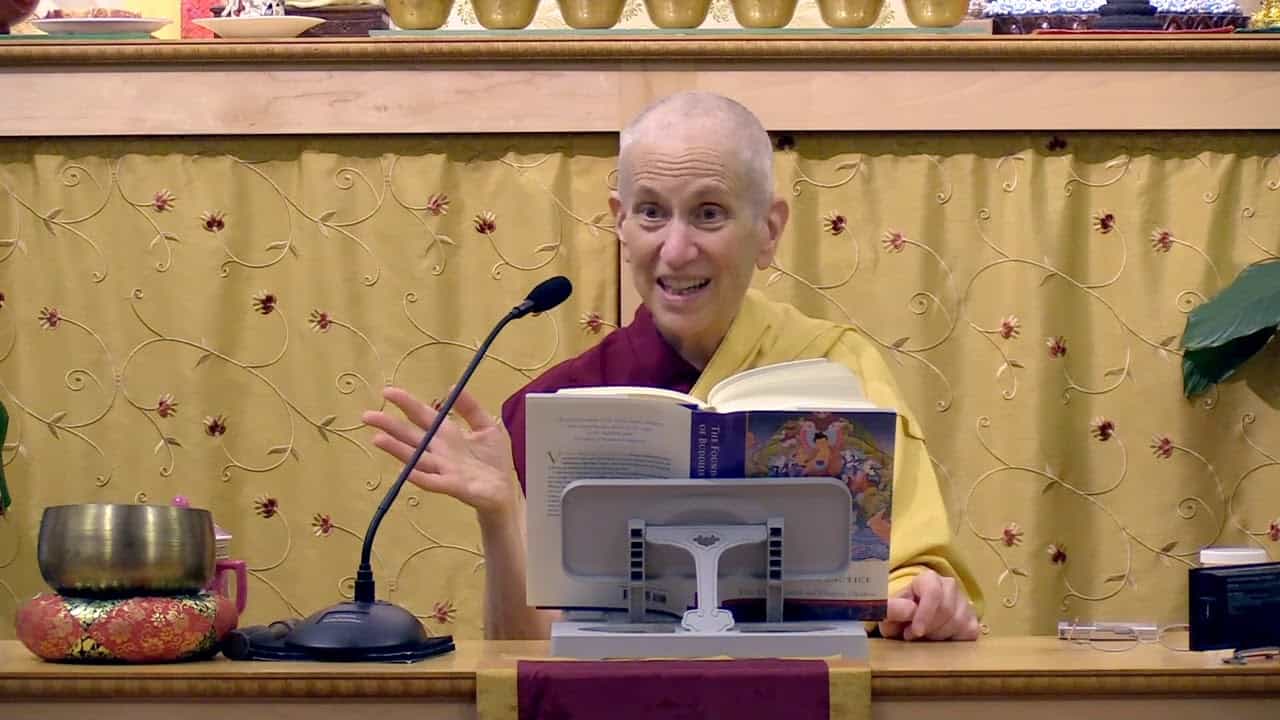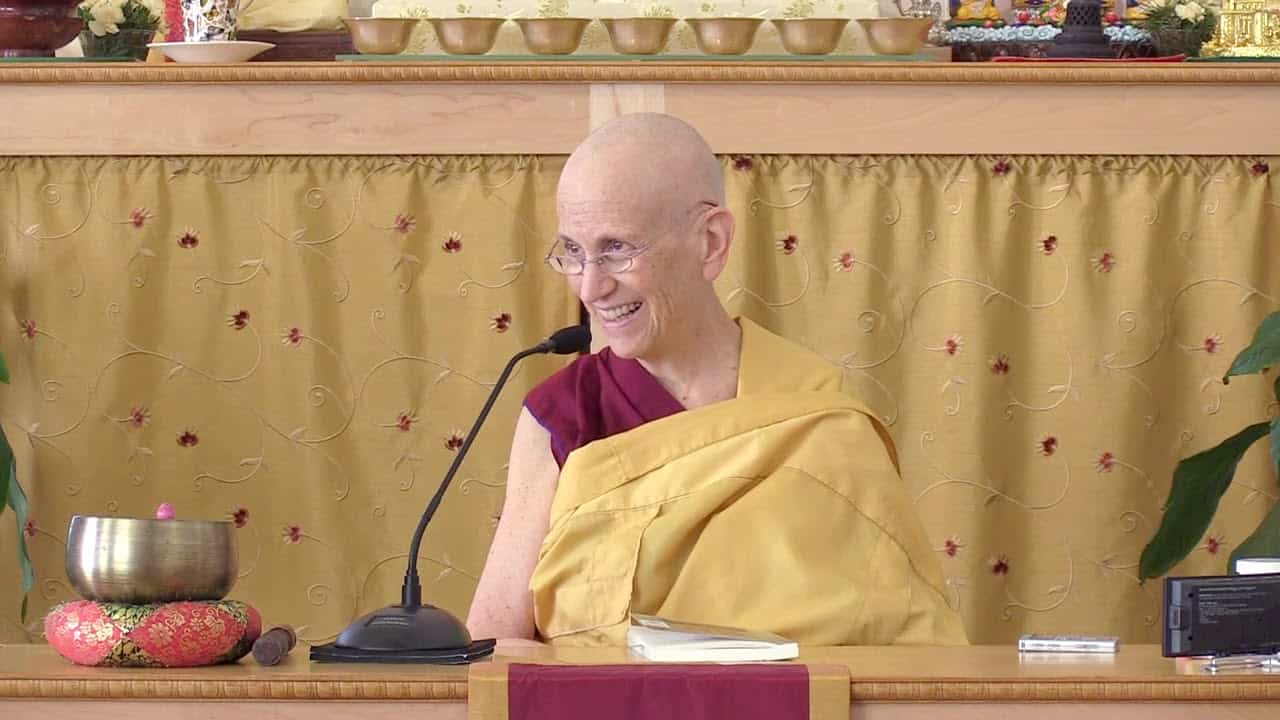Practicing Dharma with mental illness

Before ordaining as a Buddhist nun, Venerable Jigme was a psychiatric nurse practitioner and a psychotherapist. Someone recently wrote “Please teach on the struggles of practicing the Dharma while having a mental illness such as schizophrenia." This is her reply.
Whatever illness we have will impact our practice. The important point is how we approach our illness. It is crucial to remember we are not the illness, we are not the diagnosis. It is but one aspect of many aspects of our life. We have intelligence, we have compassion, we have the ability to put our attention on many different topics.
Having the diagnosis of schizophrenia is not different than having a diagnosis of diabetes. Both have particular symptoms that are treatable. If diabetes is not treated, blood sugar rises, damages other organs, and makes thinking more difficult. If schizophrenia is not treated, the mind has thoughts that are not in alignment with reality, and one gets confused and is often anxious and scared. Both of these illnesses respond to medicine.
In Buddhism we try to remember that many, many causes create each moment of experience so everything is subject to change. Impermanence is good in that we can take medicine and symptoms decrease. Sometimes the medicine causes effects that are not pleasant, so working with the person who prescribes the medicine is crucial in order to find a balance that keeps symptoms managed without strong side effects. Once this is accomplished then the person can focus on practicing the Dharma.
In your Dharma practice, you would meditate each day focusing on the breath or on the image of the Buddha, which strengthens the ability to keep your attention on what you want to focus on. We also meditate using Lamrim meditations, which are analytical meditations that help us to understand our mind and to slowly over time and with practice, transform the way we think. Every human being has obstacles to practicing the Dharma. This is part of the first noble truth the Buddha taught. For some it is greed, for others it is jealousy, for others it is living in a war zone and not being able to practice, for others it is an illness. So, we accept our obstacles with compassion for ourselves. Each day we try again to practice remembering that everything is changing moment to moment and we also practice accepting and adapting to each moment as it arises.
As a psychiatric nurse practitioner, I never prescribed medication without cognitive therapy. If the patient had a therapist, the therapist and I supported the patient together. I worked with a few people with schizophrenia, managing their meds and meeting for talk therapy every week. The talk therapy helped them understand the illness, know what made the symptoms worse (such as recreational drugs and alcohol), and learn to identify psychotic thinking so that they could call me and the medicine could be adjusted. I also worked with them around managing the negative symptoms of the illness and with their families to teach them about the symptoms, effects of medicine and possible side effects, and how to connect with their loved one. And finally I worked with them around their grief around having this illness and to accept what they were able to do versus what they hoped to do in their lives. All the people I worked with were extremely intelligent and kind, and I felt so sad about how the illness affected them.
Cognitive behavioral therapy, as well as learning specific coping methods, helps address symptoms of schizophrenia. A combination of talk therapies and antipsychotic medication is commonly used. Similar to a person with diabetes who goes to the doctor and takes medicine and goes to a behavioral therapist to learn how to cope with diet restrictions and symptoms, those with mental illness go to a behavioral therapist to learn how to cope with symptoms. Therapy supports people with schizophrenia to pursue their life goals. Having therapy and medication together allows for those with schizophrenia to have fewer flare ups of symptoms and be able to put more focus and energy on Dharma practice.
Venerable Thubten Jigme
Venerable Jigme met Venerable Chodron in 1998 at Cloud Mountain Retreat Center. She took refuge in 1999 and attended Dharma Friendship Foundation in Seattle. She moved to the Abbey in 2008 and took sramanerika and sikasamana vows with Venerable Chodron as her preceptor in March 2009. She received bhikshuni ordination at Fo Guang Shan in Taiwan in 2011. Before moving to Sravasti Abbey, Venerable Jigme (then Dianne Pratt) worked as a Psychiatric Nurse Practitioner in private practice in Seattle. In her career as a nurse, she worked in hospitals, clinics and educational settings. At the Abbey, Ven. Jigme is the Guest Master, manages the prison outreach program and oversees the video program.


